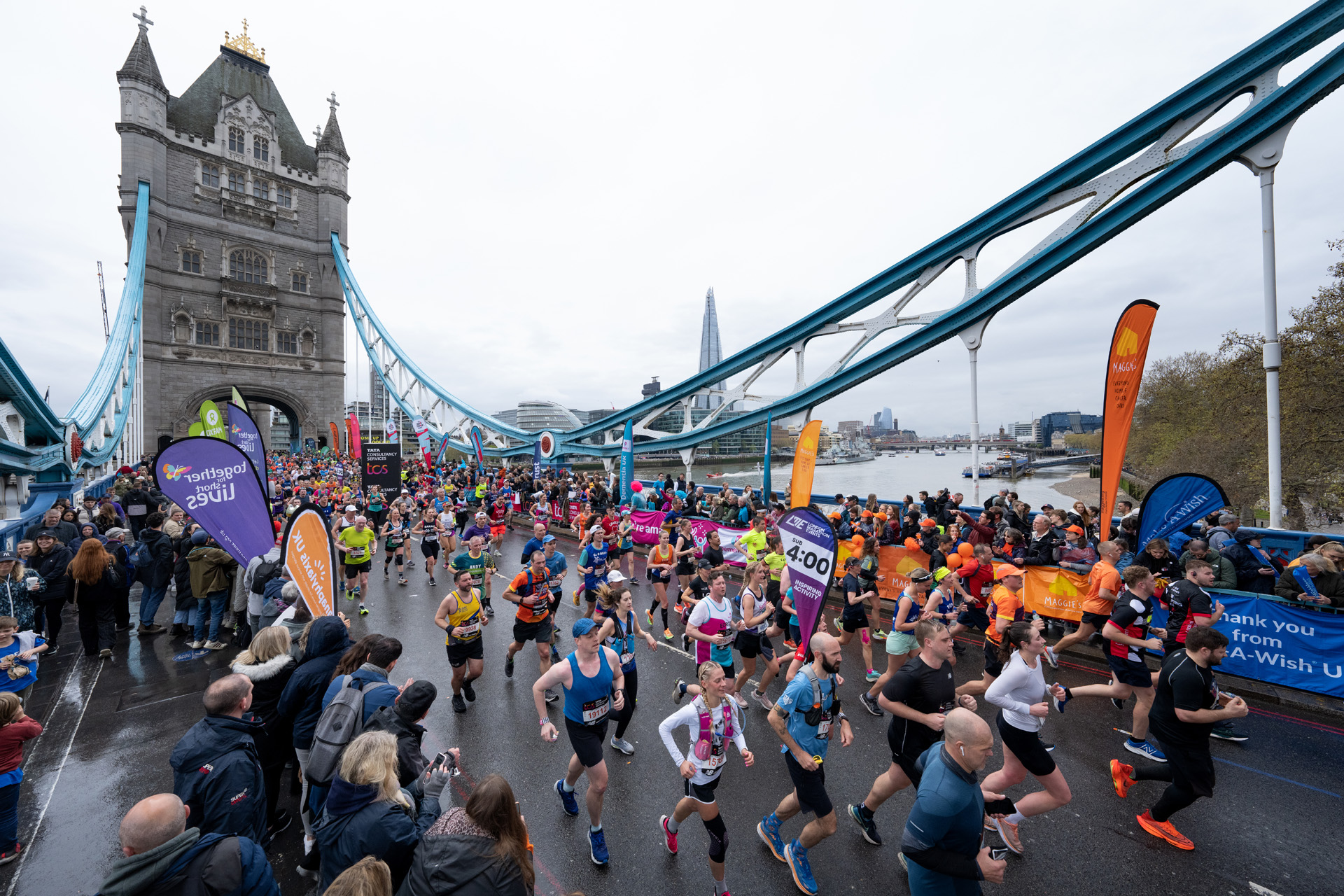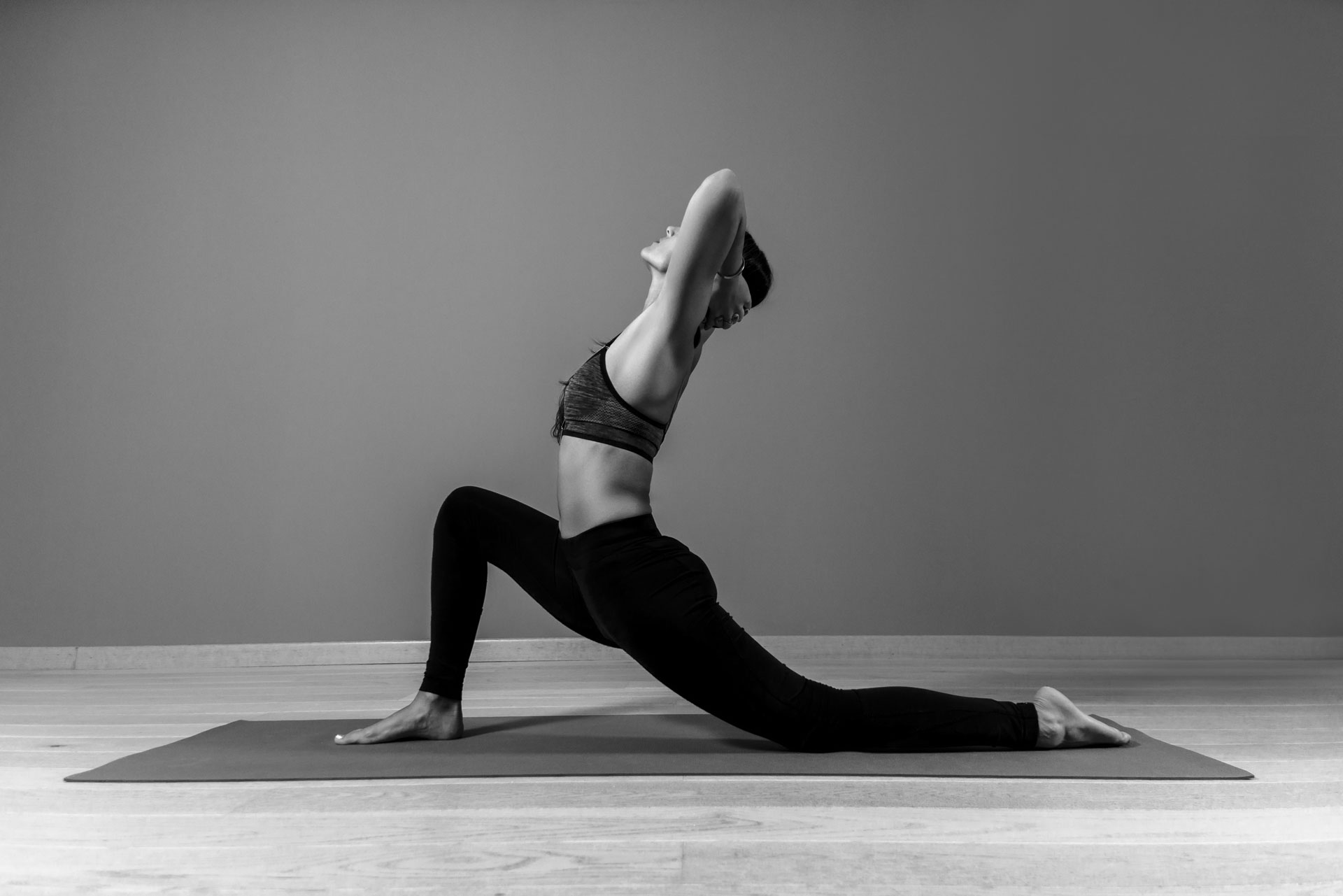Final Countdown: How To Prepare For The London Marathon
By
8 months ago
Top tips for the lead-up to race day

So, you’ve spent the past few months racking up the miles in preparation for the 2025 London Marathon on 27 April. But now the bulk of the training is done, how should you approach the last few weeks leading up to the big day? When should you do your final long run? And what steps will help minimise the risk of injury? We asked the experts for their advice on all things marathon tapering, fitness and mobility. Here’s how to nail the final few weeks leading up to the London Marathon – and click here for a deep dive into pre-race nutrition.
A Guide To Marathon Tapering

Getty Images
Running
With just a few weeks to go until marathon day, most runners will be entering the tapering phase, which involves reducing the intensity of your training schedule. This will look different for everyone, but there are some general guidelines to follow.
‘The longest run before a marathon should typically be done a week or two before your final taper,’ says Molly Slater-Davison, seasoned marathon runner and founder of These Girls Run, an all-female running and wellness club. ‘If you’re preparing for a marathon, then your longest run should ideally be between 18-22 miles (29-35km), depending on the time it would take you to do this, to give you a good indicator of how your body and mind might feel before, during and after your race. I always use my longest run as a good way to practice fueling for race day too – always try to avoid trying anything new on race day!’
After the final big one, it’s time to build up your energy stores and cut back on running volume to allow your body to rest before the marathon. ‘I would usually recommend it to take at least two weeks to taper after you’ve hit that final long-run mark,’ says Slater-Davison. ‘The taper period is a chance for your body to build up stores for race day and to absorb everything you’ve done in your training, both physically and mentally.’
However, she recommends keeping going with some light running. ‘It’s important to keep running so your body and mind stay in the rhythm for race day but to cut back on volume so your body and mind can also get the rest they need. My advice would be to run at your most comfortable pace, and the one you’d likely do during the marathon itself, but to significantly cut down volume as you get closer to the day.’
What about the day before? A little run to get your head in the game, or total rest? ‘It’s completely up to you and what your taper weeks have looked like,’ says Slater-Davison. ‘Every single run you’ve done up until now has been an amazing stepping stone to get you to where you are on race day, so listen to your body – if you need to prioritise sleep or fuelling the day before, then absolutely prioritise this over anything. If you do want to run to stretch your legs out, then I’d say to do a very steady 5km max.’
Ultimately, it’s important not to mix things up too much during the final countdown. ‘Do not try anything new,’ says Alan Morton, personal trainer and expert tutor at The Fitness Group. ‘This is not the time for experimenting. You want at least one race pace high tempo attempt at least a week before the event. Enough time to see where you have got in your training, a dry run where if mistakes are made, they are learned from prior to the event. Between this and the main event there should only be recovery or tempo runs to keep the legs ticking over.
‘Certainly, keep up massage sessions and in general take care of your body in the run up, but the weeks prior it’s about optimising your fitness to peak for the run and to hit race day with as little residual fatigue from training as possible.
‘I would recommend a short race pace run four or five days before the event and a half distance tempo run three days before the event, which involves easy running then accelerating gradually mid-way through before returning to an easy pace towards the end, and full recovery for two days beforehand.’

(c) Getty Images
Mobility and Strength Training
Hopefully, mobility and strength training will have been a fundamental part of your training throughout. Keeping your body mobile is essential for keeping your joints strong, and helps reduce the risk of injury – every marathon runner’s worst nightmare. Resistance training, meanwhile, gives runners a stronger base, strengthening muscles and joints and ultimately allowing you to run faster and longer.
So how should you adapt your training plan in the weeks running up to the marathon? ‘In terms of mobility you want to be keeping this work up all the way up until the marathon to reduce the risk of injury and to help with recovery,’ says personal trainer Aimee Victoria Long. ‘Within your strength training hopefully you will be strengthening your hamstrings and calves to help deal with the load requirements a marathon has. In the final few weeks your strength training should taper off. Start decreasing the loads you are using and reduce the repetitions and sets. You don’t want to be going into the higher rep ranges that can cause muscle soreness and discomfort leading into race week.’
Rest
We all know how important sleep is for our general health, but there’s research to show runners need even more kip than the rest of us. A recent study published in the Medicine & Science In Sports & Exercise journal found runners who extended their sleep time for 90 more minutes for three days improved their performance by three percent. One of the greatest marathon runners of all time, Eliud Kipchoge, has said he sleeps for ten hours a day: eight at night, and a two-hour nap during the day. Naturally, that’s not possible for many of us – but even small changes, like going to bed half an hour earlier, can help in the lead-up to the big day. The night before, take some time to destress and relax, whether that’s with a hot bath or simply chilling on the sofa with a bit of Netflix.
























